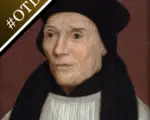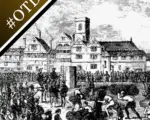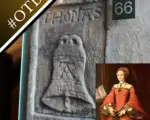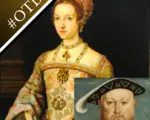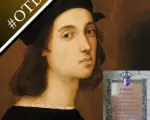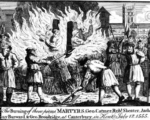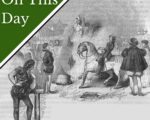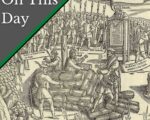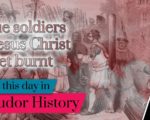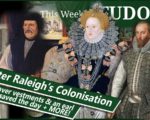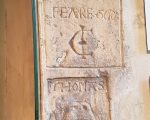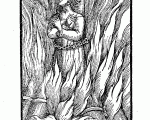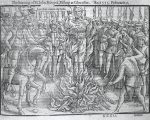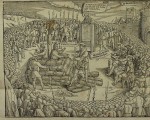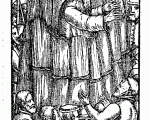On this day in history, 17th July 1555, Protestants Margaret (Margery) Polley and Christopher Wade (Waid) were burned for heresy. Wade was a linen-weaver from Dartford and Polley was a widow from Pepenbury, Tunbridge Wells.
Martyrologist John Foxe described Margaret Polley as being “in the prime of her life, pious, charitable, humane, learned in the Scriptures, and beloved by all who knew her” and “the first female martyr in England”, although surely that title actually belongs to Anne Askew, who was burned for heresy in 1546.
Here is John Foxe’s account of the condemnations and burnings of Polley and Wade:
[Read More...]
